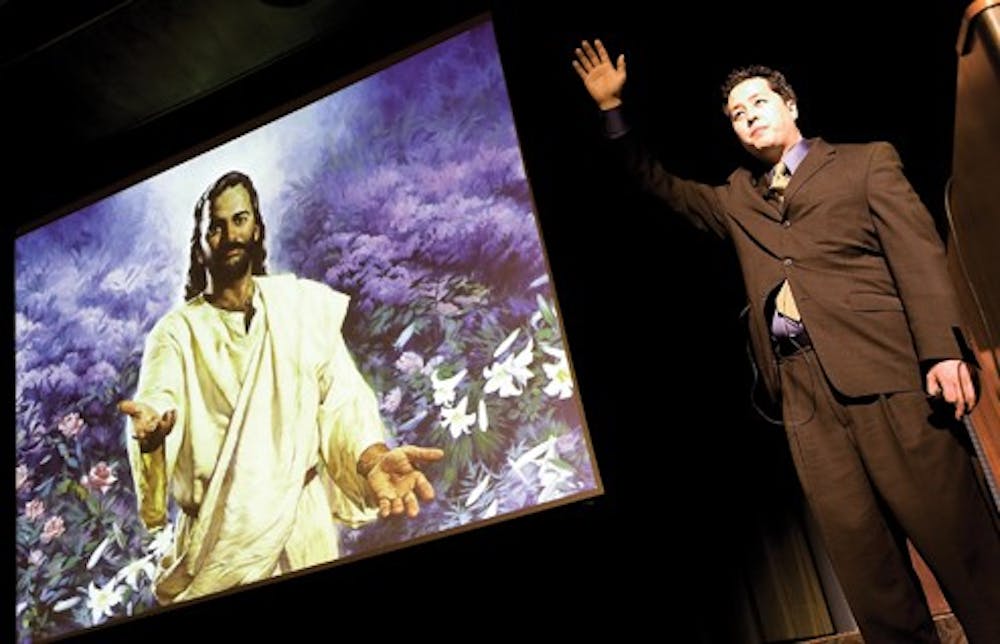There are six different lines of evidence that the Bible proves itself, said Jed Lee, the speaker for “Examining the Evidence: A Serious Look at God,” a week-long lecture series sponsored by Adventist Students for Christ.\nIn the Wednesday night lecture at Ballantine Hall titled “Has God Spoken? Is the Bible what it claims to be?,” Lee, who has an MBA and law degree from University of Oregon in Eugene, presented what he called “prima facie evidence” for the belief that the Bible is a divine document. Prima facie refers to evidence that is sufficient to prove a particular idea unless it’s rebutted, Lee said.\n“There is an assumption that if you can find one little flaw in the argument, everything comes tumbling down,” Lee said, referring to the high standards demanded of evidence on religious subjects. \nHe drew parallels between Holocaust deniers and those who question Christianity to illustrate this.\n“The Holocaust was not a single event. It happened many times to many people, so if you take the convergence of all the evidence out there, then you know that the Holocaust occurred,” Lee said. “And even if there is one piece of evidence against the Holocaust, it doesn’t mean that it’s false.”\nLee, who began by stating that his arguments depended on circular reasoning, said it can be proven historically, archeologically, scientifically and prophetically that the “Bible is not solely the production of human beings.” \nLee cited historical texts and archeological artifacts that corroborate events described in the Bible; textual evidence that demonstrates Biblical authors were aware of modern scientific facts, such as the curvature of the Earth; old testament prophesies that were fulfilled; the long journey that the Bible took through history and how the Bible has inspired many people to make positive life changes.\nThe lecture is one of the first religious events sponsored by the IU Student Association Assisted Inter-organizational Development department, which changed its policy this year to offer aid to religious student organizations. \nKellen Hubert, the director of IUSA AID, said aid applications from religious and political organizations are examined on a case-by-case basis, but that events must be “informative, non-denominational and focused on educating or addressing a specific issue.” \n“... (I)nitiatives that discuss political and religious topics must serve a public purpose and not proselytize or force political or religious beliefs on anyone,” Hubert said.\nSteven Weitzman, a professor of religious studies who did not attend the lecture, said in an e-mail that he thinks the existence of God is solely a personal belief that cannot be proven through reason or evidence. \n“... God cannot be ‘known’ in the way the rest of the universe is,” Weitzman wrote. “There are rational considerations that might lead one to believe that God exists, or act as if God exists, but these are not based on evidence in the way that, say, the existence of dinosaurs or the theory of evolution are.”\nAbigail Koo, the president of Adventist Students for Christ, explained the goals of the lecture series. \n“We wanted to present a fair chance for others to decide on the existence of God and to get to know what Christianity is about in an educational setting,” she said.
Lecture examines Biblical evidence

Get stories like this in your inbox
Subscribe





